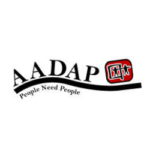OUR MISSION
AADAP exists to change lives and save families adversely impacted by substance abuse. It provides the diverse and multi-ethnic communities of Los Angeles a comprehensive “whole person” approach in its education, intervention, treatment, outreach, advocacy, and employment programs. AADAP distinguishes itself by embodying the Hawaiian concept of “Ohana,” meaning “family.” Each individual who joins AADAP joins a Family bound together by its values of compassion, responsibility, and respect.
AADAP’S HISTORY
Over forty years ago, during one hot summer, 31 Asian American youth died of drug overdoses. As much as elder members of the community wanted to believe their kids “did not do drugs” this epidemic in 1971 jolted the community into a shocking reality. This was their kids, and something needed to be done.
The community organized, held meetings, talked to youth who were working with youth, trying to figure out what was really going on. What they realized was people in the Asian American community, both young and old, had nowhere to go when it came to drug abuse. These youth needed a place to belong and someone to talk to, someone who understood their culture and family and could relate to what they were going through.
A proposal was written and submitted to the Federal Government asking for funding for the first ever drug abuse program targeting Asian Americans. The proposal was funded, and in 1972, the Asian American Drug Abuse Program was born. Today, some 48 years later, AADAP remains one of a few select programs in the nation with a mission to target and design services for Asian and Pacific Islanders with drug abuse problems.
Unfortunately some of the same problems facing Asian Pacific Americans then are the same problems many are facing now. A whole new generation of youth are still struggling with identity and a need to “fit in.” Asian immigrant youth and adults bring with them a whole new set of problems, as they struggle with a new culture, language and way of living. For some, drugs and alcohol are still a quick escape from pain.
The problems of current day have also brought a whole new set of challenges. HIV/AIDS, infants born exposed to drugs, people suffering from drug and mental health problems, homelessness, youth in gangs…The need for AADAP is greater than ever.

